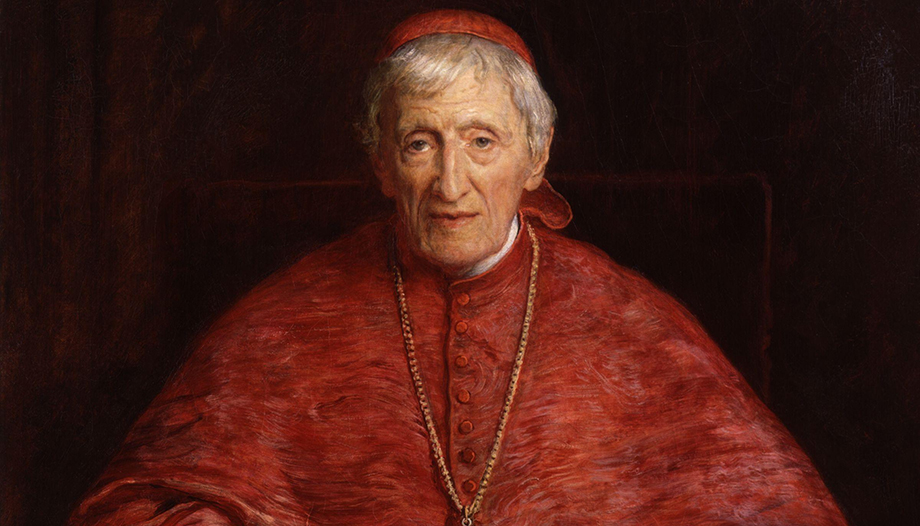Although Newman had already ascended to the altars, his appointment as Doctor of the Church reinforces the guarantee of his doctrine as catholic, an enriching reference for all those who look at his writings. In short, it constitutes him even more as a lighthouse, whose kindly light can guide us in the darkness of the night, paraphrasing his immortal poem Lead Kindly Light.
That light that he projects for eternity is, of course, borrowed from his Lord, whom he sought as a child, found as the years went by and ended up loving immeasurably.
In recalling his life and work in these last days, I must admit that the trait that has come to my mind the most is his constant willingness to renounce worldly goods in order to follow Jesus Christ.
For example, when he was only a teenager he decided to become a clergyman in the Anglican church and, without this being necessary or customary in his time, he self-imposed apostolic celibacy, voluntarily denying himself the possibility of finding a love on earth to accompany him in life's journey.
However, there is an even more impressive moment of renunciation of the goods of the earth, already in his maturity. Indeed, Newmanwith his vital rectitude and his tireless search for the true and the beautiful, had been realizing, in the framework of what has been called the "Oxford movement", that the truth resided in the Roman Catholic Church, and he considered knocking on the doors of Rome. However, for him, who was a leading figure in the Anglican Church (Fellow of Oriel, one of the Colleges Oxford's most important and vicar of St. Mary's, the university's church) to become a Catholic meant leaving that whole world behind. It is difficult for people of other times and environments to gauge what that step entailed, but I think the image of a member of the gentry becoming an outcast can illustrate the significance of that decision.
Thus, when on October 3, 1845, a few days before being received into the Catholic Church by Dominic Barberi on October 9, 1845 at Littlemore, he wrote to the Oriel authorities to inform them that he was leaving his post as an academic, Newman was aware that he was leaving everything behind. He was abandoning all his previous dreams to be a rank-and-file Catholic, a layman in a still persecuted and minority Catholic Church in England. He would become, overnight, an immigrant in his own country.
And the most surprising thing is that, judging by the content of the letters he wrote to his family and closest friends in those days, he confessed that abandoning such a privileged social position did not cost him anything. For Newman, on the contrary, belonging to the one flock of Christ was everything. He added that it simply hurt, and a lot, to lose so many friends in the Anglican church and in Oxford, where he knew he had to leave.
I believe that this gesture of Newman to abandon everything to focus on following God is a great example for the men and women of our time who, as Pius XI said, possess the disease of lack of reflection, of the continuous and feverish pursuit of external things, the immoderate desire for riches and pleasures that gradually cause us to lose sight of noble ideals, which sinks us in the sea of earthly and perishable goods, preventing us from contemplating the things above, eternal, God himself (cfr. Pius XI, Mens Nostra, 5).
In the same way, Newman's appointment as a Doctor of the Church gives us the great joy of appreciating how God, who never lets himself be outdone in generosity, gave back to Newman in his lifetime all that he had been deprived of. He regained his friends as time went by. Soon after his conversion, he was granted the priesthood in the Catholic Church; the cardinalate at the end of his earthly days; and, more recently, the recognition of sainthood after a life of great tribulations. And, finally, he now attains the doctorate of the Church from the hands of Pope Leo XIV.
This new recognition of the Church with Newman also allowed me to savor the goodness of God with Dominic Barberi. This Italian religious who in his youth had seen the call to convert England, although he could not go there until he was almost fifty, and who, on occasion, had been received with stones in some English villages when he began to establish the Passionist missions there. To this humble religious, who spoke bad English, who had also suffered the unspeakable, after arriving at Littlemore on the night of October 8, 1845, shod to the bone, God granted him the grace of seeing how, while drying himself before a fireplace, one of the great figures of his time knelt before him and begged him to hear his general confession and receive him into the Catholic Church.
Thank you, St. John Henry Newman, thank you for being that kindly light that guides us in the darkness.
Professor of International Law and International Relations, CEU Fernando III University. Research Fellow, Blackfriars Hall, Oxford University.








